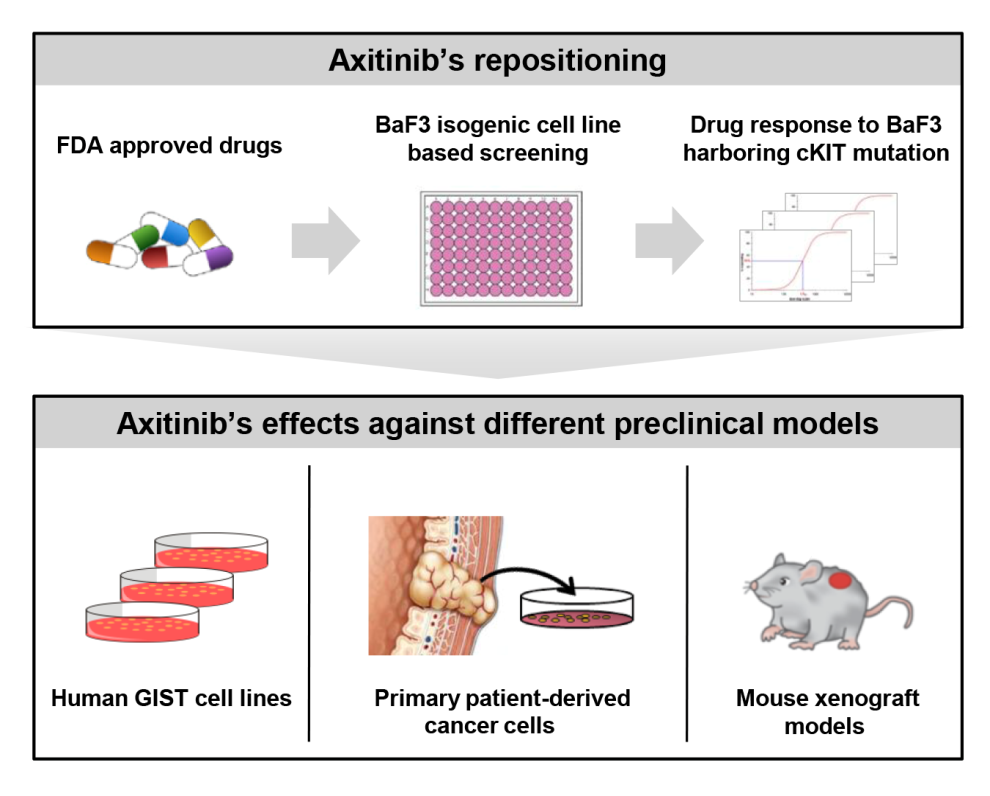Aug 02,2019|By
The research group led by Prof. LIU Qingsong and Prof. LIU Jing at High Magnetic Field Laboratory, Chinese Academy of Sciences (CHMFL) recently discovered that Axitinib, a clinically approved drug for renal cell carcinoma (RCC), exhibited the potential against gastrointestinal stromal tumors.
cKIT kinase over expression and gain-of-function mutations are the critical pathogenesis of GISTs, which are the most common mesenchymal tumors of the gastrointestinal tract.
Although Imatinib as the first line treatment has remarkably improved the GISTs patients' survival, varieties of mutations including those occur in the ATP binding pocket of cKIT kinase like T670I, V654A and activation loop such as D816V/H, N822K etc. are resistant to Imatinib.
Second line treatment such as Sunitinib and Regorafenib could overcome some of those mutations. However, their poor clinical response rate and the toxicity associated with the off-targets leave a great demand of new target therapies for GISTs with different mutant sensitivity spectrum.
Via a high throughput screening approach of the known clinically used drugs, the researchers at CHMFL discovered that Axitinib exhibited potent activities against Imatinib-resistant mutations in the ATP binding pocket including T670I and V654A.
In addition, it also displayed better activities than Imatinib against primary mutations occurred in the juxtamembrane domain including L576P, V559D and secondary mutations occurred in the activation loop including D816V/H, N822K and A829P.
These effects were also confirmed in the in vivo preclinical GISTs models and primary GIST patient-derived cell model.
Given the fact that Axitinib has been widely used in the clinic and its human PK/ADMET properties have been well characterized, its different cKIT mutant sensitivity spectrum would make it a valuable potential drug candidate for those drug resistant/intolerant GISTs patients.
This work was supported by the National Natural Science Foundation of China and the "Personalized Medicines Molecular Signature-Based Drug Discovery and Development", Strategic Priority Research Program of the Chinese Academy of Sciences.
 |
|
Drug repurposing strategy for Axitinib against GISTs (Image by LIU Feiyang) |
Attachments Download: